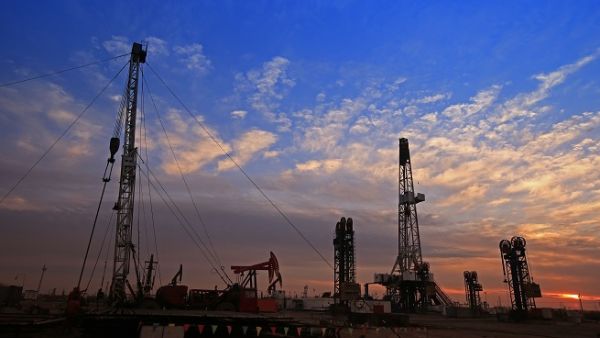Oil prices jumped on Monday in immediate reaction to a crucial decision by Opec and allies not to boost output urgently, rebuffing US President Donald Trump's call to increase production amid restricted Iranian crude exports and tightening global supply.
With markets showing signs of further tightening ahead of impending new Iran sanctions, traders and analysts are predicting that oil could scale above $90 per barrel.
Benchmark Brent crude hit its highest since November 2014 at $80.94 per barrel, up $2.14 or 2.7 per cent, before easing to around $80.65 by 1335GMT. US light crude was $1.30 higher at $72.08.
Analysts said US commercial crude oil inventories are at their lowest since early 2015 and although US oil production is near a record high of 11 million barrels per day, subdued US drilling activity points towards a slowdown in output.
Commodity traders Trafigura and Mercuria said on Monday that Brent could rise to $90 per barrel by Christmas and pass $100 in early 2019, as markets tighten once US sanctions against Iran are fully implemented from November.
Read More
OPEC Summit to Answer the 1.4 Million Barrels Question Ahead of US Sanctions on Iran
OPEC, Non-OPEC Countries to Finalise Permanent Framework Ahead of US Sanctions
"Trade war and emerging-market contagion fears could still serve to keep a lid on prices in the near term, but we believe that the geopolitical risks remain skewed quite heavily to the upside," wrote analysts led by Helima Croft, global head of commodity strategy at RBC Capital Markets, in a note.
On Sunday, Opec and its allies at a meeting in Algiers ruled out any immediate boost in crude output but reassured the market that they would do whatever is necessary to balance the supply.
The decision not to urgently increase output was in effect a snub to Trump, who has been persistently calling for action to cool the market.
Suhail bin Mohammed Faraj Faris Al Mazrouei, Minister of Energy and Industry, said as the market is right now in "good condition," the Emirate would not overuse its spare production capacity.
Saudi Energy Minister Khalid Al Falih also ruled out the need to use spare capacity to increase oil output. The Saudi minister said returning to 100 per cent compliance was the main objective and should be achieved in the next two to three months.
"We have the consensus that we need to offset reductions and achieve 100 per cent compliance, which means we can produce significantly more than we are producing today if there is demand," Falih said.
"We expect that those Opec countries with available spare capacity, led by Saudi Arabia, will increase output but not completely offset the drop in Iranian barrels," said Edward Bell, commodity analyst at Emirates NBD bank.
BofA Merrill Lynch in its Global Research report raised its average Brent crude oil price forecast for 2019 from $75/bbl to $80/bbl compared to a Cal19 forward of $75
The report said in one year the focus could shift to three demand factors.
"First, crude oil prices are rising against a strong dollar backdrop. Thus, prices are unlikely to rise as fast as and as high as they did in 2007/08 when the US dollar weakened in response to Fed rates cuts. Second, increased levels of debt means emerging markets are now in a more fragile starting position than in 2008. Third, higher US rates, lower US corporate taxes, and new US tariffs could continue to suction capital out of EMs. As a result, significant EM oil demand destruction could follow if Brent crude oil spikes above $120/bbl."








